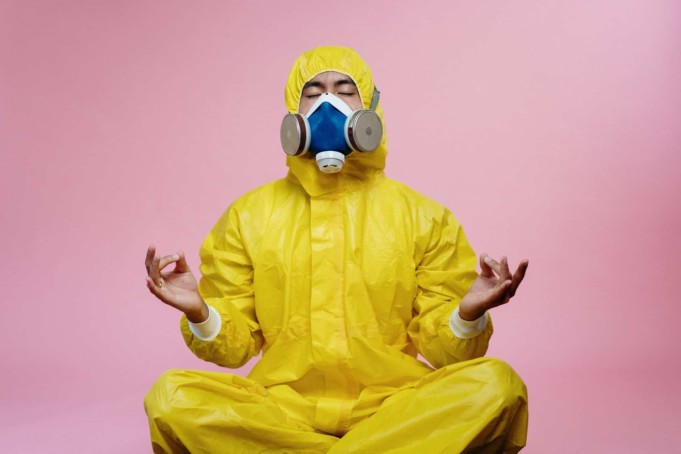Stay up to date with the latest information on the Wuhan coronavirus (now known as COVID-19) outbreak, made available by the WHO. COVID-19 is still spreading and affecting mostly those living in China with some recent epidemics in other countries.
Most individuals who get infected by the virus experience mild illness and may recover, but for other people, it can be more severe. The best way to take care of your health during this period and protect other people is by doing the following:
1. Wash your hands frequently
Alcohol-based hand sanitizers are very useful for regularly and thoroughly cleaning your hands. Better yet, wash your hands thoroughly with soap under running water.
Why? When you wash your hands using soap and water or making use of alcohol-based hand rub helps to kill viruses that may stay on your hands.
2. Maintain social distancing
Always maintain a minimum distance of 1 meter (3 feet) between yourself and any person who is sneezing or coughing.
Why? When a person coughs or sneezes, they unknowingly spray tiny liquid droplets from their mouth or nose, which may contain the virus. If you stay too close to them, you can likely breathe in the droplets, and that includes the COVID-19 virus if the person sneezing or coughing has the disease.
3. Avoid touching eyes, nose and mouth
Why? Our hands, as humans, touch many surfaces such as doorknobs, elevator buttons, stair railings, handles, and so many more places where we can easily pick up viruses.
Once your hands are contaminated, they can quickly transfer the virus to your nose, eyes, or mouth. From there, the virus can travel into your body and can make you fall sick.
4. Practice respiratory hygiene
Make sure you, and every person around you, follow the best respiratory hygiene. This means that you must cover your mouth and nose with a tissue or your bent elbow when you sneeze or cough. If you use a tissue, make sure that you dispose of it immediately.
Why? The reason why using a bent elbow or a tissue is necessary is to protect the people around you from contracting viruses such as cold, flu, and COVID-19.
If you begin to cough, have a fever, or have difficulty breathing, ensure that you seek medical care immediately.
Stay at home if you begin to feel unwell. If you notice you have developed a fever, cough and difficulty breathing, seek immediate medical attention, and place a call through to the emergency health service in your country. Follow the directions provided by your local health authority.
Why? Your national and local authorities will always have the most recent or to date information on the outlook of things in your area. Calling in advance when you feel any symptoms will allow your doctor or health care provider to refer you to the correct health facility quickly.
This will also help to protect you and prevent the spread of viruses and some other infections.
Stay up to date with information and follow the advice offered by your healthcare provider
Stay up to date on the most recent developments about COVID-19. Check out for advice and information from your healthcare provider, as your national and local public health authority will always share information on how you can protect yourself and others from contracting the COVID-19.
Why? The WHO makes sure that your national and local authorities always have the most up to date info on whether or not there is a spread of COVID-19 in your area. They are in the best position to advise on what people in your area must do or avoid to protect themselves.
Protective measures for people who are currently in or have recently visited (past 14 days) places where COVID-19 has been reported
Follow the guidance outlined above.
Stay at home and take care of yourself if you begin to feel ill, even with mild symptoms like slight runny nose, and headache, until you feel better.
Why? You must avoid contact with other people and also visit a medical facility as this will allow these medical facilities to operate more efficiently, and help to protect you and other people from possibly getting COVID-19 and other viruses.
If you have already developed a fever, cough, and problems breathing, make sure to seek medical advice promptly as this may be as a result of a respiratory infection or other serious medical condition. Call in advance and talk to your provider of any recent travel or recent contact with travelers.
Why? When you call in advance, it will allow your health care provider to direct you to the appropriate health facility swiftly. This is also a way to prevent any likely spread of COVID-19 and other viruses.
We hope that you found this article helpful. Please do not hesitate to leave a comment below.












